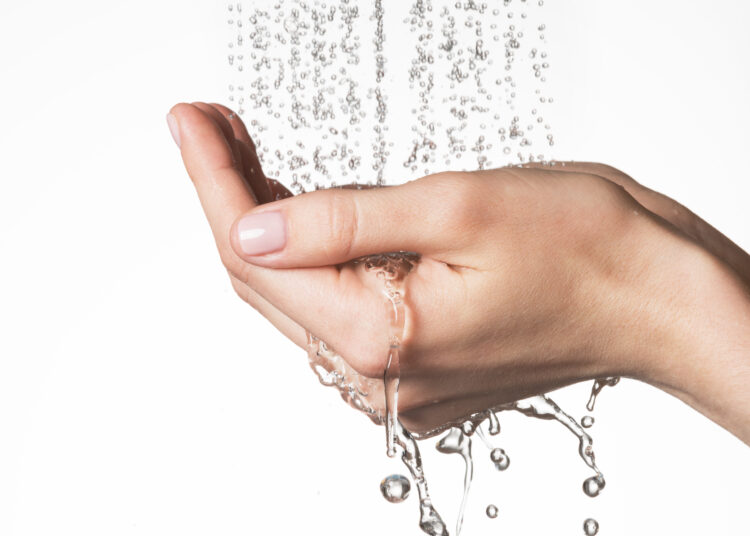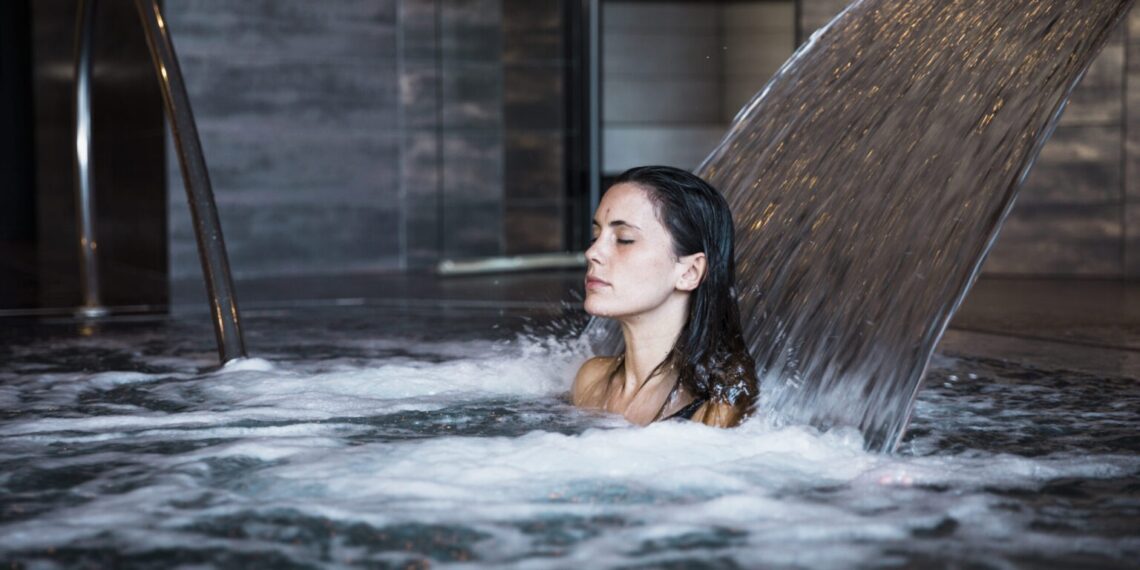10 Benefits of Cold Showers: Unveiling the Chilling Truth
Have you ever stood beneath the spray of cold water, shivering yet strangely invigorated? Cold showers, a seemingly simple part of daily life, hold a surprising depth of benefits that go beyond just waking you up. This article delves into the 10 benefits of cold showers, exploring not just the immediate jolt they provide but also their profound impact on health and well-being. From invigorating your skin to enhancing your mental alertness, cold showers might just be the hidden key to unlocking a healthier, more vibrant you.
Table of Contents
How Beneficial Are Cold Showers?
In the quest for health and wellness, cold showers have emerged as an unlikely hero. Far from being a mere test of endurance, 10 benefits of cold showershese showers are both surprising and scientifically backed. Here are some of the key advantages that cold showers bring to your health regimen:
-
Improved Circulation: When cold water hits the body, it causes blood vessels to constrict and then dilate. This natural process of vasoconstriction and vasodilation helps to improve circulation, ensuring that blood efficiently reaches all parts of the body. Enhanced circulation not only boosts heart health but also improves the appearance of the skin by delivering essential nutrients and oxygen.
-
Enhanced Mental Alertness: The shock of cold water triggers a flood of adrenaline and endorphins, leading to increased alertness and clarity. This natural surge of energy can kickstart your day, making you feel more awake and ready to tackle challenges.
-
Skin and Hair Health: Contrary to hot showers, which can strip the skin and hair of their natural oils, cold water helps to tighten pores and cuticles. This leads to healthier-looking skin and shinier, stronger hair, as the cold temperature locks in moisture and reduces frizz.
-
Boosted Immunity: Regular exposure to cold showers can enhance the body’s lymphatic and immune systems. The cold water stimulates lymph vessels to contract, which helps the lymphatic system flush out toxins and fight off infections more effectively.
-
Stress Reduction: Cold showers have been shown to decrease levels of uric acid and boost levels of Glutathione, an antioxidant that keeps all other antioxidants performing at their optimal levels. This can lead to reduced stress and a calmer state of mind.
-
Weight Loss Support: Exposure to cold can activate brown fat, which burns more calories to generate heat. This process, known as thermogenesis, can aid in weight loss efforts and boost metabolism.
-
Muscle Recovery: Athletes often use cold water immersion to speed up muscle recovery. Cold showers can provide a similar benefit by reducing muscle soreness and inflammation after intense physical activities.
-
Mood Enhancement: The cold-induced rush of endorphins can have a positive impact on your mood, making cold showers a potential ally in battling mild depression or simply lifting your spirits.
-
Increased Willpower: Regularly braving cold showers requires mental fortitude. Over time, this can strengthen your willpower, resilience, and discipline in other areas of life.
-
Improved Sleep Quality: A cold shower can lower your body temperature, which can help in signaling your body that it’s time to rest. This can be particularly beneficial for those who struggle with insomnia or disrupted sleep patterns.

How Long Should a Cold Shower Be?
A common question for cold shower enthusiasts is about the optimal duration to maximize benefits without overexposure. The answer lies in balancing efficacy and comfort. A cold shower of just 2-3 minutes can provide significant health benefits. This duration is sufficient to stimulate the nervous system, improve circulation, and accelerate muscle recovery. For beginners, even a 30-second finale of cold water at the end of a regular shower can be a good start. As you adapt, gradually increasing the duration can help you acclimate to the sensation while reaping the full spectrum of benefits.
The Science Behind It: The body’s response to cold water is immediate and intense. Within seconds of cold exposure, the sympathetic nervous system is activated, heart rate increases, and blood flow is redirected to vital organs. This reaction is part of the body’s acute stress response, which can be beneficial in short bursts. Prolonged exposure, however, might not provide additional benefits and could be uncomfortable or even risky, particularly for those with certain health conditions. Therefore, a brief but regular cold shower strikes the perfect balance between activating the body’s natural defenses and maintaining overall comfort.
Do Cold Showers Tighten Skin Over Time?
One of the aesthetic appeals of cold showers is their potential effect on skin tightness and tone. Cold water can indeed have a firming effect on the skin. The low temperature causes blood vessels in the skin to constrict, which can reduce puffiness and increase skin firmness. Over time, regular cold showers can lead to more toned and vibrant skin.
The Science Behind It: When exposed to cold, the capillaries in the skin contract, and then expand once the body warms up again. This process, known as vasodilation, can improve skin elasticity and firmness. Additionally, the reduced pore size from the cold water helps in minimizing the appearance of acne and other skin blemishes. While the effects may vary from person to person, incorporating cold showers into your skincare routine can be a natural and invigorating way to maintain skin health.
Is It Better to Have Cold Showers Every Day?
The frequency of cold showers depends largely on personal preference and tolerance. Taking a cold shower every day can be an invigorating practice that offers consistent benefits, such as improved circulation and enhanced mental alertness. However, it’s important to listen to your body and adjust the frequency and temperature to suit your comfort level and health needs.
The Science Behind it: Daily cold showers can train the body’s thermoregulatory system, improving its ability to adapt to different temperatures. This can enhance metabolic function and immune response over time. However, it’s crucial to approach this practice mindfully, especially for those who are new to cold exposure or have pre-existing health conditions. A gradual introduction with a focus on personal comfort can help make daily cold showers a sustainable and beneficial habit.
How Many Cold Showers a Day?
Ideal Frequency of Cold Showers
Basics: Generally, one cold shower daily is sufficient for most. It provides benefits like improved circulation and mental alertness.
Listening to Your Body: If you feel energized after one shower, that’s likely your ideal number.
For Athletes: People in intense physical activities might benefit from an extra shower for muscle recovery.
Time of Day: Personal preference matters. Morning showers can be energizing, evening ones may aid in better sleep.
Challenges and Caution: Multiple daily showers might be part of challenges but aren’t necessary for everyone. Overdoing it can stress the body.
Gradual Increase: Start with once a day and observe how your body reacts. Adjust as needed.
Quality Over Quantity: Focus on enjoying and maximizing the benefits of each shower.
Health Concerns: Consult a healthcare professional if unsure about what works best for you.
Personal Alignment: Tailor the number of showers to your health goals and comfort level for a positive experience.
How to Take Cold Showers
Integrating Cold Showers into Your Routine: Taking the plunge into cold showers can be a refreshing and invigorating experience that offers numerous health benefits. Here’s a step-by-step guide to help you incorporate this practice into your daily routine, ensuring a smooth transition and maximum benefit.
-
Start Slowly: Ease into the practice. Begin with your usual warm shower and then gradually decrease the temperature. This gradual approach helps your body acclimate to the cold and makes the experience more tolerable.
-
Focus on Breathing: Deep, controlled breathing is essential when adapting to the shock of cold water. It helps to calm your nervous system, reduce stress, and increase your tolerance to the cold.
-
Duration and Frequency: Initially, aim for a brief cold shower of around 30 seconds to 1 minute. As you become more comfortable, gradually extend this time up to 2-3 minutes. Consistency is key, so try to incorporate cold showers into your daily routine.
-
Full Body Exposure: Start by exposing your feet and legs first, then gradually move to your stomach, arms, chest, and back. This methodical approach allows your body to adjust to the cold in stages.
-
Mindset Matters: Approach cold showers with a positive mindset. Acknowledge the health benefits you’re gaining, such as improved circulation, enhanced mood, and increased energy levels.
-
Cold Shower Techniques: Experiment with different cold shower techniques. Some people prefer starting cold and staying cold, while others alternate between hot and cold. Find the method that works best for you.
-
Listen to Your Body: Pay attention to how your body reacts. If you feel too uncomfortable or experience any negative reactions, adjust the temperature or shorten the duration. Cold showers should be challenging but not harmful.
-
Post-Shower Care: After your cold shower, dry off briskly to warm up. Engage in light exercise or stretching if needed to boost circulation and warm your body.
-
Cold Shower Challenges: For added motivation, participate in cold shower challenges or track your progress. Setting goals can help maintain consistency and make the practice more rewarding.
-
Consult Healthcare Providers: If you have pre-existing health conditions, especially related to the heart or blood pressure, consult with a healthcare provider before starting cold showers.
Embrace the refreshing power of cold showers and experience a transformation in your physical and mental well-being. Remember, the journey to adapting to cold showers is unique for everyone, so tailor the experience to suit your personal health needs and preferences.
Huberman: Why Cold Showers Are So Life Changing
Conclusion: Embracing the Cold for Better Health
In conclusion, we’ve covered the 10 benefits of cold showers and how they offer a unique combination of health benefits that can positively impact both physical and mental well-being. From improving skin health to boosting the immune system, the advantages of incorporating this simple yet powerful practice into your daily routine are clear. While the initial plunge into cold water might be challenging, the resulting vitality and rejuvenation can make it a rewarding experience. Remember, the key is to find a balance that works for your body and lifestyle, allowing you to enjoy the full spectrum of benefits cold showers have to offer.
FAQ Section: In-Depth Insights into Cold Showers
How Do Cold Showers Boost Immune Function? Cold showers stimulate the production of white blood cells and increase metabolic rate, which in turn accelerates the immune response.
Can Cold Showers Aid in Weight Loss? Yes, by activating brown fat, which burns calories to generate heat, cold showers can contribute to increased metabolism and weight loss.
How Do Cold Showers Improve Mental Health? Exposure to cold water triggers the release of endorphins, which can reduce stress and improve mood, acting as a natural antidepressant.
Are Cold Showers Safe for Everyone? While beneficial for many, they may not be suitable for individuals with certain heart conditions or severe hypertension. Consultation with a healthcare provider is recommended.
How Does Cold Water Impact Skin and Hair? Cold water tightens pores and cuticles, improving the skin’s appearance and hair strength by locking in moisture and reducing frizz.
Do Cold Showers Help in Muscle Recovery? Yes, they reduce inflammation and soreness in muscles by constricting blood vessels and decreasing metabolic activity in the affected area.
What is the Ideal Temperature for a Cold Shower? Around 10-15 degrees Celsius (50-59 degrees Fahrenheit) is often considered ideal for experiencing the benefits of a cold shower.
How Long Does It Take to Adapt to Cold Showers? Adaptation time varies, but most people start feeling comfortable with daily cold showers within 2-3 weeks.
Can Cold Showers Improve Cardiovascular Health? Yes, by enhancing blood circulation and strengthening the cardiovascular system through repeated exposure to cold.
Is There a Best Time to Take a Cold Shower? Morning cold showers can invigorate and energize, while evening showers might improve sleep quality.
Do Cold Showers Affect Blood Pressure? Initially, cold showers can cause a spike in blood pressure due to vasoconstriction, but regular practice may lead to long-term blood pressure stabilization.
Can Cold Showers Boost Fertility in Men? Cold showers can improve sperm quality and testosterone levels as they keep testicular temperature optimal for sperm production.
How Do Cold Showers Affect the Lymphatic System? The cold triggers lymph vessels to contract, helping the lymphatic system move fluid and detoxify the body more effectively.
Are Cold Showers Beneficial for Skin Conditions like Eczema? Yes, they can reduce skin inflammation and irritation, although individual responses can vary.
Can Cold Showers Replace Exercise for Metabolism Boost? While they boost metabolism, cold showers should complement exercise, not replace it, for overall health benefits.
How Do Cold Showers Compare to the cold plunge temperature option? Cold showers are less intense and more accessible than cold plunge temperatureice option but offer similar benefits like reduced muscle soreness and improved circulation.
Can Cold Showers Help with Anxiety? They can have a calming effect on the nervous system and reduce symptoms of anxiety by lowering cortisol levels.
How Do Cold Showers Impact Sleep Patterns? They can improve sleep quality by lowering body temperature, a signal to the body that it’s time to rest.
What Are the Long-term Effects of Taking Cold Showers? Long-term effects include improved immune function, better skin health, enhanced mental clarity, and increased stress resilience.
How Can Beginners Gradually Adapt to Cold Showers? Start with lukewarm water and gradually decrease the temperature over several showers. Begin with a few seconds of cold water and increase the duration over time.







